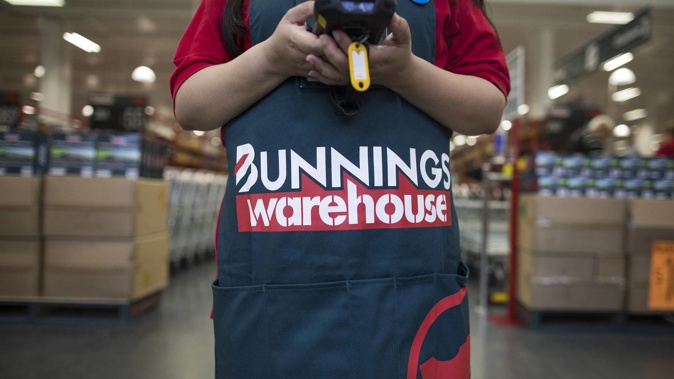
The Commerce Commission's case alleging Bunnings made misleading representations it offered the lowest prices in the market has been dismissed.
Auckland District Court Judge Brooke Gibson ruled none of the 45 charges under the Fair Trading Act 1986 met the evidential threshold for the claims the building and hardware chain had deceived customers.
In a case which began in December 2016, the Commerce Commission claimed Bunnings' advertising at its stores across New Zealand, along with advertising campaigns, gave an overall impression it offered the lowest prices for its products, when this was not true.
Advertising included phrases such as "lowest prices are just the beginning", "lowest price guaranteed","lowest prices on all your DIY jobs" and "unbeatable prices".
The lowest price guarantee said if customers "happen to find a lower price on the same stocked item" elsewhere then Bunnings would beat its competitor's price by 15 per cent.
Bunnings denied the allegations, which came from a Commerce Commission investigation focused on the period from July 2014 to February 2016.
After a lengthy trial in April and May this year, Judge Gibson publicly released his judgment this week.
He said the evidence hadn't reached the point where he was satisfied beyond reasonable doubt the advertising was false, misleading, deceptive or liable to mislead or deceive.
"Consumers would ... consider the [lowest price guarantee] alerted them to the possibility that not every item in Bunnings may be the lowest price but providing [sic] a remedy to achieve that," Judge Gibson said.
He also found consumers would be aware of the vast range stocked by Bunnings and its competitors and realise the company, a wholly owned subsidiary of Australia's West Farmers Ltd, could not always be the lowest price.
Judge Gibson added it would be acceptable if Bunnings' price was the lowest about 85 per cent of the time, provided the lowest price guarantee was available to ensure consumers could obtain the lowest price from the hardware store.
Mitre 10, Bunnings' main competitor, had also advertised itself as having the "lowest prices". In 2011 the Commerce Commission wrote to both Bunnings and Mitre 10 warning the companies the advertising may constitute a breach of the Fair Trading Act 1986.
Mitre 10 decided to discontinue its advertising but Bunnings did not.
In late 2014, Mitre 10 complained to the Commerce Commission about Bunnings' lowest price claims. There was no evidence of any other complaint from the public, which the judge described as "somewhat remarkable" given the length and prominence of Bunnings' campaign.
The Mitre 10 complaint led to the Commerce Commission's investigation, which included two informal price checking surveys in 2015 and a survey from a third party.
Bunnings' own data from a survey company, provided to the Commerce Commission, showed the company on average did not have the lowest prices on 18.6 per cent of products.
/cloudfront-ap-southeast-2.images.arcpublishing.com/nzme/MGH3HNCJMAS4X2FWSEZP6LIGHY.jpg)
The Commerce Commission alleged Bunnings had breached the Fair Trading Act 1986 with its lowest prices advertising. Photo / Getty Images
But Judge Gibson said he was not willing to draw a conclusion that the evidence from the four surveys was "sufficiently robust and statistically reliable".
"The flaws in the various surveys are such that I am not prepared to accept the Commerce Commission has met the evidential burden of proving the advertising, for the purpose of the charges, was liable to mislead the public as to a particular characteristic, namely price," his judgment reads.
Bunnings' managing director, Mike Schneider, welcomed the court's decision and said the four-year legal proceeding had seen both parties incur significant costs.
"We remain committed to our lowest prices policy along with the comprehensive business processes and procedures operating behind the scenes in both New Zealand and Australia to support its delivery," he said.
"We will continue to focus on our customers and the community, especially at this challenging time, and we look forward to bringing even more choice and competition to the market."
Commerce Commission chair Anna Rawlings said while the court didn't find in government agency's favour the judgment would provide some "important clarification" of the law relating to the use of broad marketing statements.
"In acknowledging the outcome of this case, the Commission would like to remind businesses that they must consider how consumers are likely to interpret what they are told about goods and services, their prices and available savings," Rawlings said.
"Not only must they take care not to mislead consumers, but a recent law change also makes clear that they must have reasonable grounds for making representations at the time the representations are made.
Take your Radio, Podcasts and Music with you








